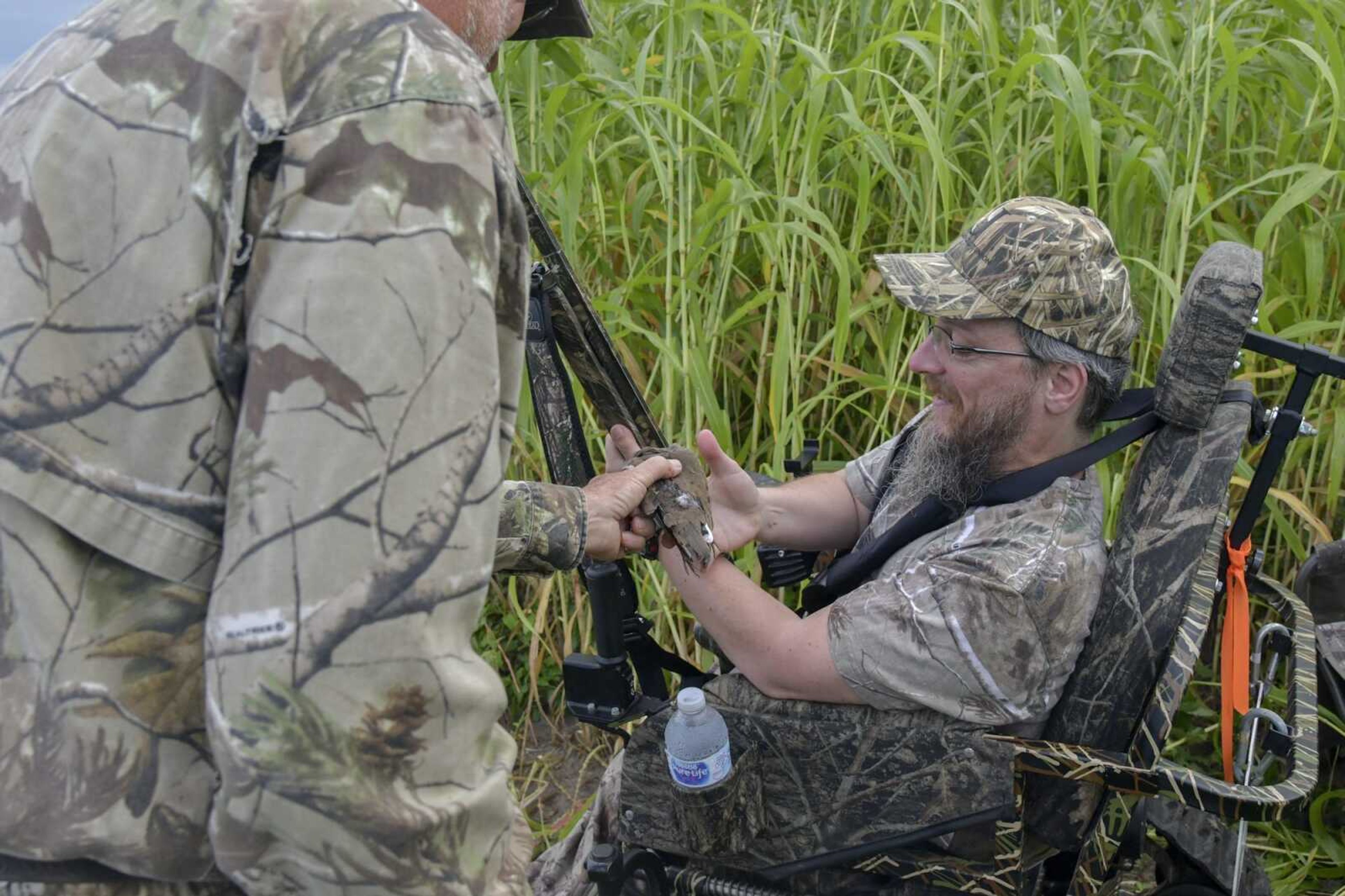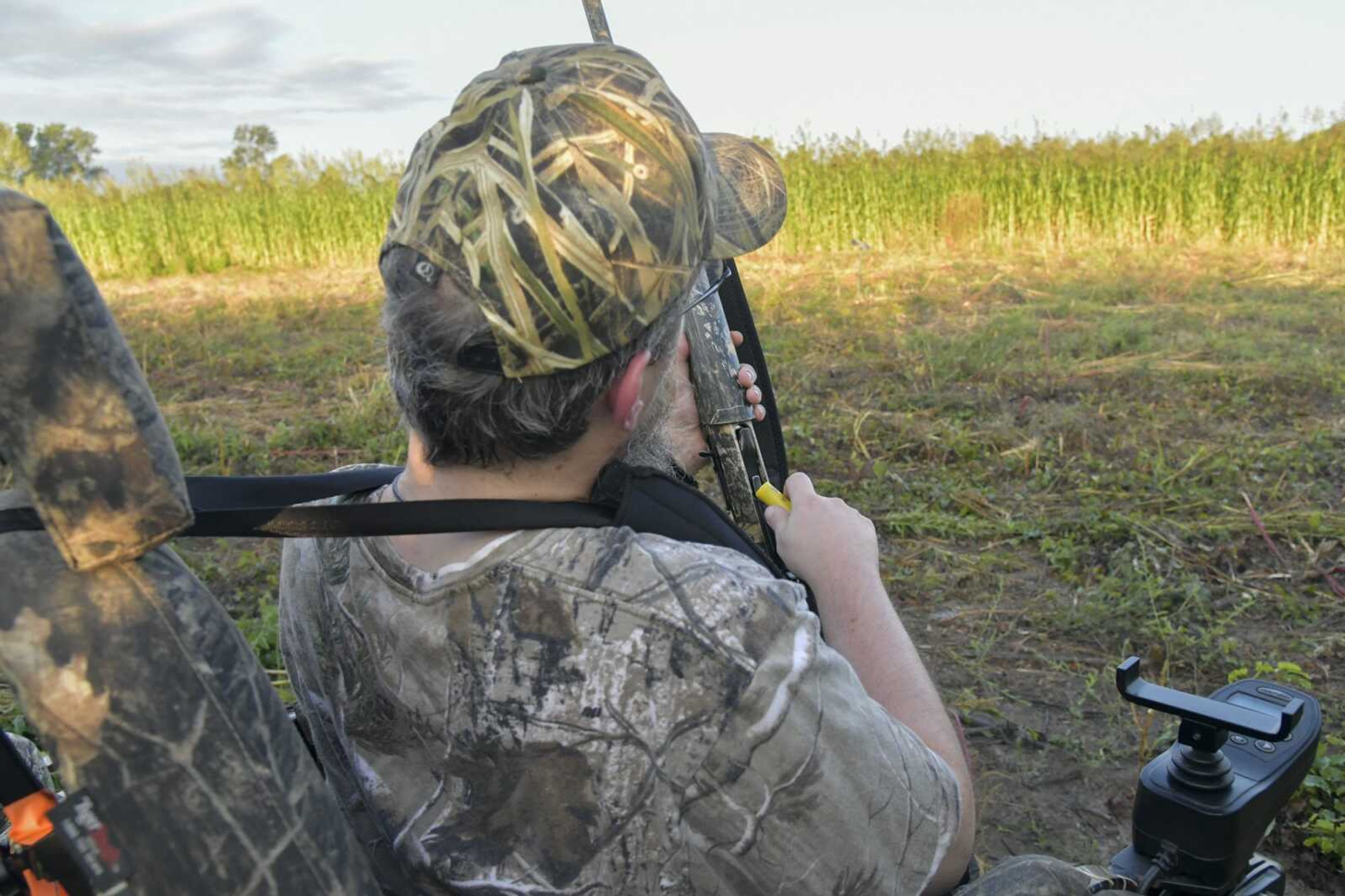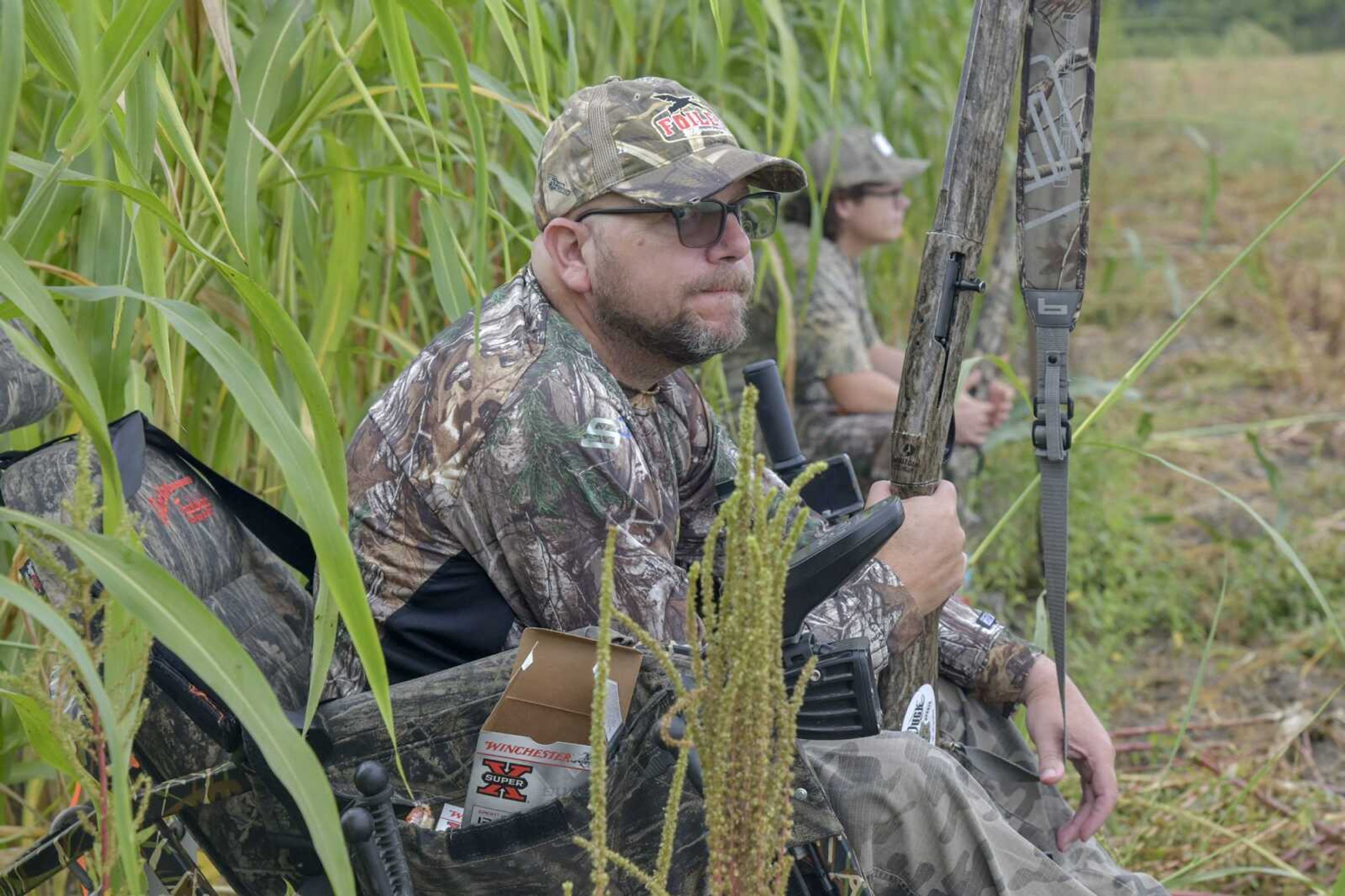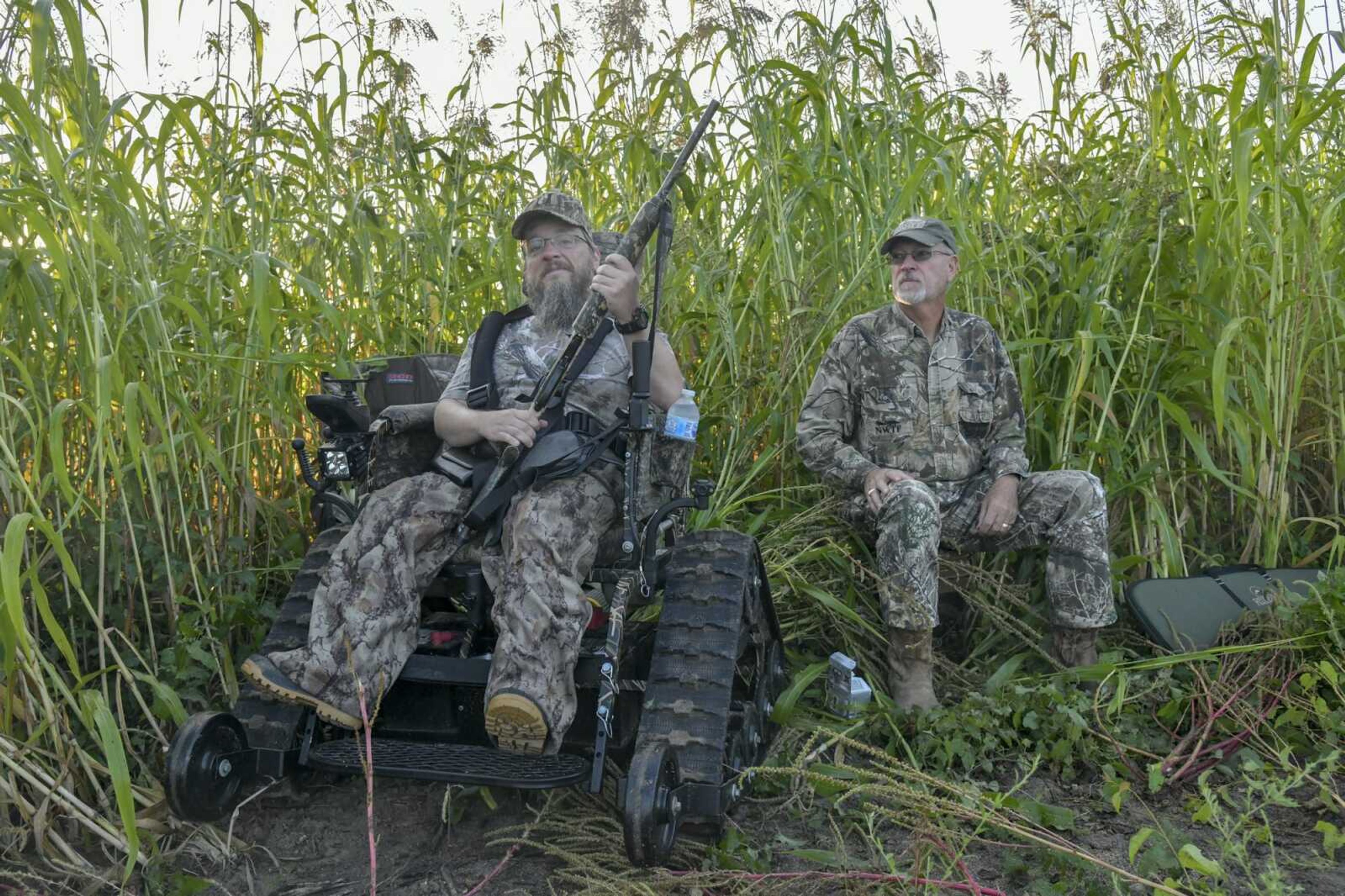The love of hunting continues for mobility-impaired individuals
EAST PRAIRIE, Mo. -- Before the sun rose Wednesday, eight mobility-impaired hunters prepared for the opening of dove season, with the help of the state Department of Conservation. "Sure helps to take your mind off of all the other problems you've got going on," Eston Livingston said about the hunt while sitting in the tall grass with his son, Weston Livingston. Both are from Whitewater in Cape Girardeau county...
EAST PRAIRIE, Mo. -- Before the sun rose Wednesday, eight mobility-impaired hunters prepared for the opening of dove season, with the help of the state Department of Conservation.
"Sure helps to take your mind off of all the other problems you've got going on," Eston Livingston said about the hunt while sitting in the tall grass with his son, Weston Livingston. Both are from Whitewater in Cape Girardeau county.
When Eston was about 5 years old, he started going on hunts with his grandfather, and has continued to hunt ever since. He lost count of how many times he and his son have hunted together. It was in recent years that the hunts got a bit more complicated for him because of his health and mobility.
About four years ago, Eston was diagnosed with glioblastoma, an aggressive brain cancer, which brought on brain surgeries and radiation and chemotherapy. He said it has affected his peripheral vision and walking ability, so he gets around with a cane or wheelchair, depending on the situation.
"This is totally a different way of doing things, of the normal, but it can still be done. So, just keep on going," Eston said about the way hunting has changed for him since his diagnosis.

In the same field, Gabe Glastetter of Scott City and Paul Strickland of Cape Girardeau County were also stationed in the tall grass. The pair met the morning of the hunt. Strickland is a volunteer with the National Wild Turkey Federation (NWTF), the Bootheel Boss Gobbler chapter, who came to be Gabe's guide for the hunt.
Glastetter said he has been in a wheelchair since he was 10 years old due to a surgery that "botched" his left leg. He didn't start hunting until about 10 years ago after coming out of a difficult hospital stay, determined to do something different.
"I was in the hospital on my deathbed from a pressure sore that got really bad. And I told myself that if I lived and was able to get out and have a life again, I was gonna do something I never done," Glastetter said.
He was introduced to the idea of hunting by nurses who talked about how their husbands hunt. He eventually got out of the hospital and went on his first hunt. He said he shot a 11-point buck, "and I was hooked ever since."
Glastetter successfully shot a few doves during the hunt. His first fell into the tall grass behind him. Strickland went to go search for it and brought it back to Glastetter with a smile and congratulated him.

"You see, I got excited as you did, just cause you got it," Strickland said.
The hunt is put on by MDC and NWTF, who provide the wheelchairs, ammunition, guides and just about anything the hunters might need.
"This is like the most rewarding experience that I'll ever, ever get to have a part of," conservation educator with MDC Sara Bradshaw said. "Some of the hunters will often tell you, like, 'This is the only time of year that I get to come out and hunt because you guys make it happen.'"
The track chairs that make mobility easier for the mobility imparied, especially during hunting, cost thousands of dollars. They are one of the most important things MDC provides for these hunts, Bradshaw said, because not everyone can afford one.
"I'm very grateful. All the conservation and the people that help put something, events like this, on are really special," Eston said. "I guess what I'm trying to say is you never know what they really mean to somebody until you're put in that position

Note: A previous version of this story referred to the Missouri Department of Conservation as "MDOC," which has been changed to the correct abbreviation of "MDC."
Connect with the Southeast Missourian Newsroom:
For corrections to this story or other insights for the editor, click here. To submit a letter to the editor, click here. To learn about the Southeast Missourian’s AI Policy, click here.










